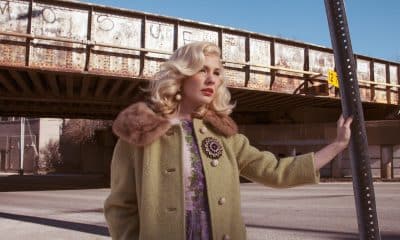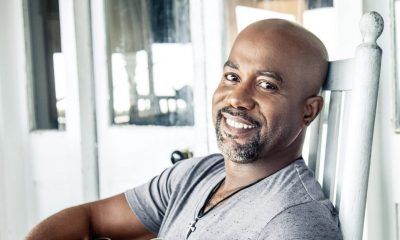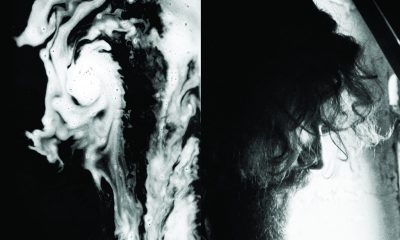Interviews
Introducing Country Band Gloriana – An Interview
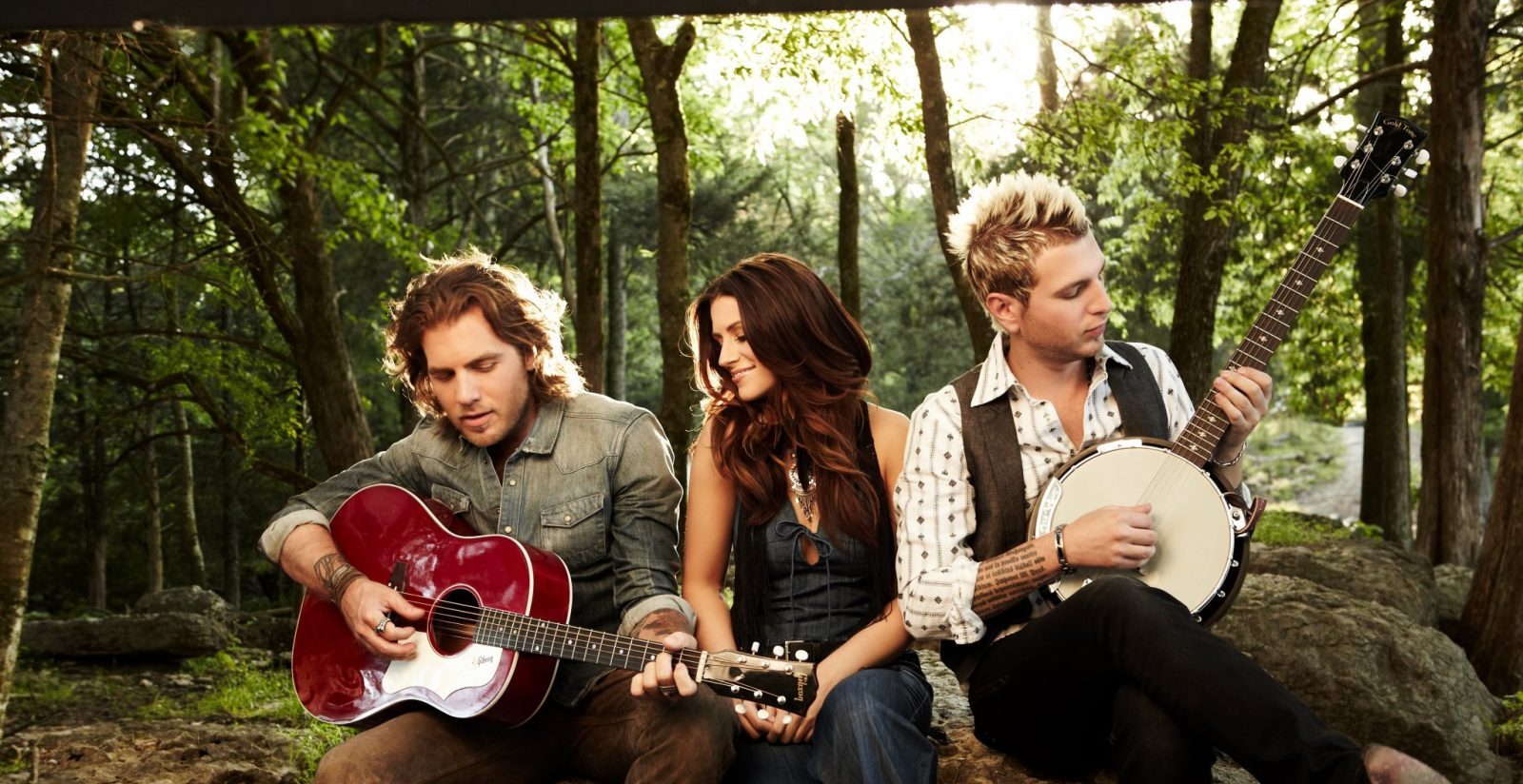
Emerging four-piece Gloriana is riding high on the success of its debut single, “Wild At Heart.” Currently at #17 on Billboard–and still climbing–the song has quickly propelled the group into the country music spotlight. And with an August 4th album (produced by Rob Thomas cohort and Emblem label-head Matt Serletic) just around the corner, all signs point to a glorious future for the band.
Tom Gossin and Rachel Reinert took some time away from Taylor Swift’s Fearless tour to answer some questions for The 9513.
JIM MALEC: How was your CMT Awards Experience?
TOM GOSSIN: It was fun, man. We’ve never played an awards show before. Being from Nashville it was really, really cool. Definitely a bit surreal being there in person when we’ve only ever seen it on TV. We had a great time.
JM: I have to ask you about your name. Why did you call yourself after a 20th century British opera?
RACHEL REINERT: We were messing around with the word “glory” for a long a time, because we thought it was a good representation of this four-part harmony we do. While we were recording our album, we were taking a break and eating some Chinese food and Michael just threw out “Gloriana.” We all just really liked the way it sounded. We just thought it was a really cool name.
It has nothing to do with the British opera. We even found out that it was actually the first nickname of the first Queen Elizabeth. But it really has nothing to do with that. We didn’t take it from that or anything. It just kinda came out of nowhere and it just stuck.
JM: Speaking of things that came out of nowhere and stuck, let’s talk about your debut single, “Wild At Heart.” The success of that single caught me a little off guard. It has had a very consistent and strong run up the charts to this point, but you were a band that didn’t really receive that much hype early on. How did you feel about that single’s chances? Did you know you had a hit?
TG: We felt very strongly about the song. We knew it had a really fresh sound and we knew it didn’t sound like anything else on the radio. When you take that kind of risk with a song, you either bank on the fact that it’s gonna be pretty big or people just won’t get it at all. But we really believed in it, and we believed in the story that it told and the vibe that it kinda put out there. Yeah, we just went for it. It’s probably the most unique song on our record, or the most standout song on our record. So we decided to go ahead and make it the first single and just kinda hit people hard the first time.
JM: Tell me about the album. If that’s one of the more unique songs, how would you characterize the rest of the material on the record?
TG: We are big fans of the modern country movement that’s going. Sugarland, Rascal Flatts and Taylor Swift. But we’re also all kids that were raised on traditional country. So we wanted to make an album that fused the two, and that could maybe could bring in a younger audience to some of our music. With a song like “Wild At Heart,” you know, maybe we could get some of Taylor Swift’s audience to be interested and then, with the other half of our album, introduce them to some of the more traditional elements that we were raised on that maybe they haven’t heard before.
And I think we did that. We have an album coming out, 13 songs, and I’d say about half of it is one vibe and half of it’s the other vibe. So I think we accomplished what we were going for.
JM: What would you say has been the most surprising or unexpected thing that has happened to you since you’ve emerged as a force in country music?
RR: I would just say the success that we’re already starting to see this early on. We’ve played the Grand Ole Opry twice already, and we got to play at the river stage for CMA Music Fest and at the CMT Awards. And we also won the fan-voted Nationwide On Your Side Award. So, I mean, just one thing after another that keeps happening for us—especially considering that we don’t even have an album out.
And also the fact that we got picked to open up for Taylor Swift on her Fearless tour, ‘cause that’s been an incredible opportunity. It’s just been one thing after another. It’s all definitely been surprising. We all felt like we had something special between the four of us and I think we all felt confident about it. But I don’t think we knew that these wonderful things would start to happen so quickly for us.
JM: You mentioned the dynamic between the four of you, and I wanted to ask you about the decision to bring Cheyenne onboard. Because the band’s bio described the meeting with here as, “pure magic,” which sounds a bit dramatic. Walk me through that time. Because the three of you were already writing together and trying to get the wheels spinning under this thing. How do you go about bringing a fourth person—a stranger—into the fold? And what did she bring to the group that completed the dynamic?
RR: Well, here’s the thing. You know, the guys, they had been playing together for years in North Carolina. We’d all been playing music since we were young kids. All of us. They guys moved to Nashville. I had been in Nashville already. I had been living there for around two years at the time, but I had been back and forth since I was 15 because I had a publishing deal.
Cheyenne saw us playing one night at 3rd & Lindsley, and I knew who she was because she had released an album and she had had a short reality show stint. So I had recognized her already when I saw her out in the audience. And so when she came up to us and asked if she could get together with us some time I was instantly for it. I told the guys she was really talented, and everyone was open to it.
By the time we all met, she had learned to play the mandolin, and it just brought in the dynamic, you know, with the two guys and the two girls and this four-part harmony that I think just really stood out. There just wasn’t anything else really like that, you know? I mean, of course there’s Little Big Town and all that, but we just have a little bit more of a different sound. I don’t know how to really describe it, but it really just felt like it was meant to be because all four of us individually were trying to make it in music on our own. And it just didn’t happen. When the four of us finally got together it clicked. And then things just started happening, one thing after another.
JM: Has it been a challenge differentiating yourselves from Little Big Town?
TG: Not really at all. The one thing we get from people is the Little Big Town comparison, but then I always say to them, “Isn’t Little Big Town kinda like Fleetwood Mac?” Because they were the first ones to do it. Abba did it, as well. You could go through the list. Having two guys and two girls is just a lineup that happens to be two males and two females. But our sound is completely different, I think, than all of the aforementioned artists. And what we bring to the stage, what we’re going to bring in the future, it’s definitely our own thing. We’re not worried about the comparisons whatsoever.
JM: Tell me about your deal with Emblem.
TG: It’s a label started by Matt Serletic who’s our producer. He’s a Grammy winning producer who’s been a complete blessing for us to work with.
He actually got his first taste of country doing a Willie Nelson record. He produced The Great Divide. But he’s always been a country fan. And more than that a huge Americana fan. I know he’s a huge John Mellencamp and Tom Petty fan. And those are some of the guys that really influenced us as well.
He went to start a label and wanted to do a country project, and we were the first thing he came across. Actually, it was when Rachel and Mike and I had just written our first song together, called “Time To Let Me Go,” which is gonna be on the album August 4th. I had met Matt a couple of years prior to that with my brother through a manager we had at the time. This was maybe 2004 or 2005. And Matt had said that if we did anything cool in the future he’d check it out.
So we wrote that song and felt it was really strong, and I said, “Let’s send it to that Matt guy and see if he’s into this.” It just so happened he was looking for a country act and an act to launch his new label. So it worked out. The timing was perfect. You know, when they say a lot of the record business is luck and timing, that was one of those instances where we just happened to get to him at the exact right time. And it all worked out.
JM: Have you had a chance to write with Matt?
TG: We’ve fooled around with it. We had a writers’ camp over a weekend in Nashville where we got together with like 30 of the best writers in town, and Matt was involved there. So there were bits and pieces. But none of the official songs on the album ended up being us and Matt. But Matt wrote a lot for this record with Jeffrey Steele, and I think the two of them together really created a lot of the magic moments on this record.
JM: What does Gloriana need to do in order to achieve long-term success? If you’re lucky enough to be making records 20 years from now, how will you have gotten there?
RR: What it comes down to is consistently making great music. That’s a tough question. I think it’s a matter of making great music and continuing to deliver what people want. And just continuing to look at what we’re doing in the past and continuing to compete with ourselves as opposed to trying to compete with other people. What have we done, and how can we do this even better? Every single time.
JM: Being that Tom and Mike are brothers—and both guys—I wonder about the social dynamic of the band. Siblings have been known to band together at times, and to squabble at others. How do the four of you go about maintaining group harmony, especially considering the sibling to non-sibling dilemma?
TG: Truth is, man, we get along really well. It’s kinda weird. Mike and I, we’ve worked together making music, playing shows, writing and producing our own records for the past ten years. After the first little bit of it ten years ago we really learned how to gel together and honestly we get along better than any two brothers I’ve ever met. We don’t ever really fight, to tell you the truth. And we’re really on the same page musically. So that aspect’s fine.
And the girls are like best friends. They do everything together. They’re there for each other. And then the four of us, we’re like a big family. There’s an age difference between us all, so it’s more like we’re brothers and sisters. Mike and I never had sisters, and now it’s kinda like we have two little sisters and the girls got two real-life brothers to hang out with. So it’s been actually really easy for us.
JM: What is the difference between pop music and country music?
TG: Well, first off, country music, to me, is storytelling. And I know you could say that all different kinds of music are storytelling, but country music is a place for real musicians and, in my opinion, real songwriters and real singers. Nashville is the Mecca for people who are serious about music, whereas a pop artist might be serious about their dance moves or their body or their image. Country music is for people who are serious about their music.
RR: I agree with Tom.
TG: It’s about the song.
RR: And you know what else it is, country music also has this element of respect for all of the artists who have put the foundation in place. And with pop, it’s like “What’s the next new phase?” What’s the next cool thing? With country music it’s all about tradition and paying your dues and being respectful. And loving the artists that came before you, even if it was 50 years ago.
- Lists13 years ago
Top 10 Country Music Albums of 2010
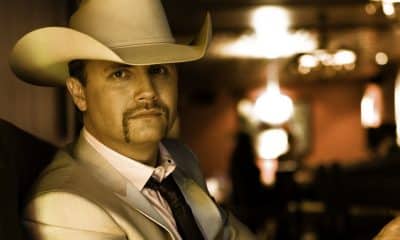
 Interviews5 years ago
Interviews5 years agoJohn Rich – The Interview

 Song Reviews16 years ago
Song Reviews16 years agoTaylor Swift – “Love Story”

 Interviews5 years ago
Interviews5 years agoHoneyhoney on Hiatus: Revisit our 2008 Interview with Suzanne Santo
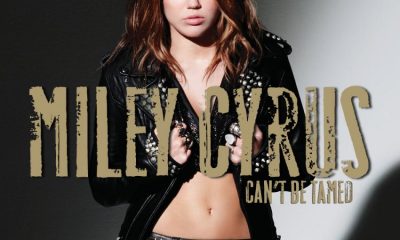
 Album Reviews14 years ago
Album Reviews14 years agoAlbum Review: Miley Cyrus – Can’t Be Tamed
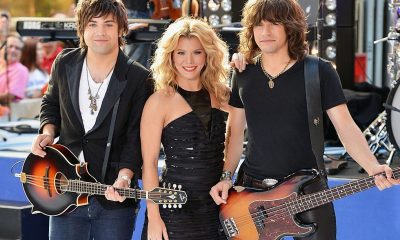
 Song Reviews6 years ago
Song Reviews6 years agoThe Band Perry – “Hip To My Heart”
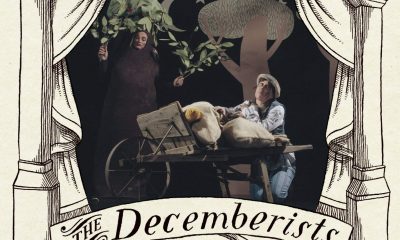
 Columns5 years ago
Columns5 years agoThe Link Between Folk Music’s Past and Present
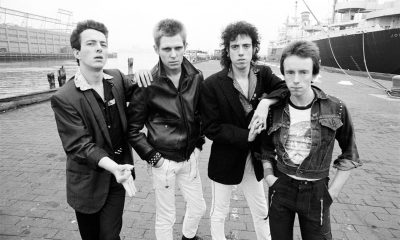
 Columns5 years ago
Columns5 years agoIs Marketing Killing Rock and Roll?




